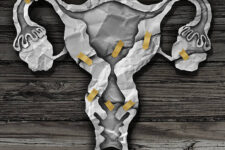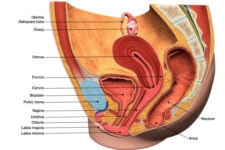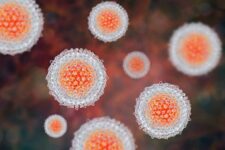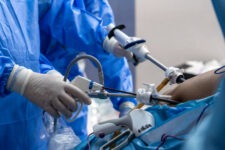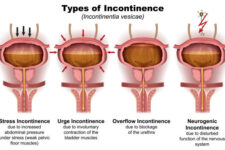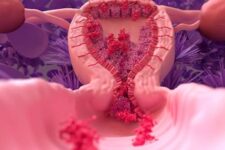
Endometriosis is the abnormal growth of endometrial tissue outside of the uterus. In the reproductive anatomy, the endometrium lines the inside of the uterus. A normal endometrium undergoes changes during the menstrual cycle.
The hypothalamus, pituitary gland, ovaries, fallopian tubes, and uterus are all part of the reproductive system. The hypothalamus regulates the release of hormones, including those involved in the menstrual cycle. The pituitary gland produces and releases hormones that control the ovaries.
The ovaries produce eggs and hormones, including estrogen and progesterone. The fallopian tubes help transport eggs from the ovaries to the uterus. The uterus is where a fertilized egg implants and develops into a fetus.
The endometrium prepares for potential pregnancy by thickening and developing glands.
During the menstrual cycle, if pregnancy doesn’t occur, the endometrium sheds and causes menstruation. Endometrial implants occur when endometrial tissue is found outside of the uterus.
Laparoscopy is a procedure used to diagnose and treat endometriosis by inserting a thin tube with a camera into the abdomen.
Treatment options for endometriosis include GnRH agonists, danazol, birth control pills, hormone therapy, and progestins.
GnRH agonists work by suppressing the production of estrogen in the body.
Danazol is a synthetic hormone that reduces the growth of endometrial tissue.
Birth control pills can help regulate the menstrual cycle and reduce symptoms.
Hormone therapy aims to control the hormonal environment to manage endometriosis symptoms.
Progestins are synthetic hormones that can help suppress the growth of endometrial tissue.
Surgical options for endometriosis include laparoscopy, laparotomy, hysterectomy, and total/bilateral salpingo-oophorectomy. Living with endometriosis involves open communication about sex, the partner’s role in supporting the patient, handling emotions, and managing pain. Future hope for endometriosis includes ongoing research to better understand the condition and develop more effective treatments.
Please, kindly know that as an affiliate participant platform, we receive commissions on select quality products you may purchase. We Really Appreciate these commissions because they help our hosting fees and maybe someday will help us to grow to our fullest capacity. ClickBank is a retailer of products on this site. CLICKBANK® is a registered trademark of Click Sales, Inc., a Delaware corporation located at 1444 S. Entertainment Ave., Suite 410 Boise, ID 83709, USA and used by permission. ClickBank’s role as retailer does not constitute an endorsement, approval or review of these products or any claim, statement or opinion used in promotion of these products.

